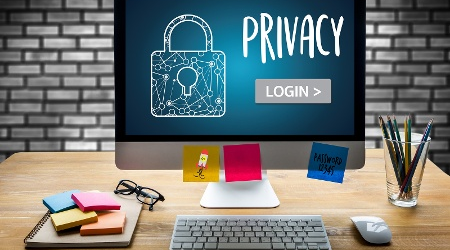SMART technology is everywhere. Using our phones, tablets, or laptops to perform helpful duties is...
How to Protect Your Digital Privacy in a Smart Home
 Many homeowners have questions about digital privacy in a smart home. After all, it’s not uncommon to see a story about your apps spying on you or Alexa listening in on your conversations. According to a survey done by PC Magazine, privacy topped consumer’s concerns about having a smart home. But before you decide to forgo the convenience, take some simple steps to safeguard your security and privacy in a connected home.
Many homeowners have questions about digital privacy in a smart home. After all, it’s not uncommon to see a story about your apps spying on you or Alexa listening in on your conversations. According to a survey done by PC Magazine, privacy topped consumer’s concerns about having a smart home. But before you decide to forgo the convenience, take some simple steps to safeguard your security and privacy in a connected home.
What Should You Know About Smart Home Privacy?
Why is it that we are concerned about smart homes, but not as much about smart phones? Any device that’s connected (the IoT concept) leaves your privacy exposed unless you safeguard yourself. More, your data is likely up for grabs anytime you're connected to the internet or using an app.
The truth is that unless you live off the grid and technology free, your "privacy" is continuously invaded. And while the focus here is on smart homes, there are some basic concepts you can utilize in other places and situations as well.
Smart home privacy starts with being smart. Meaning, instead of bypassing instructions, learn about your devices, settings, and how to create a strong password. You should also know more about your internet service and its security.
What Devices Should You Address?
In terms of smart home digital privacy, any device connected to the internet should be protected. Consider these devices:
- Smart thermostats
- Personal digital assistant devices or hubs (like Samsung SmartThings, Alexa, and Google Home)
- Smart doorbells
- Smart lightbulbs
- Smart security
How Can Your Smart Home Be More Private?
Common sense leads the way in helping you preserve digital privacy. Start with strong passwords and a different password for each device. Change passwords from time to time and make sure your new password is unrelated to the old one. Experts suggest you only need to change if your password is weak, may have been compromised, or if you feel it's time for a change.
Some other tips to help safeguard your digital privacy include:
- Don’t connect a device to the internet if you don’t have to.
- If you must provide information, avoid giving birthdates, social security numbers, or any other identifiable info that you don’t have to.
- Always update devices – often updates include improved or extra security.
- Look at your settings/options/customizations – always choose the most private settings allowed, and customize if possible for additional protection and privacy.
- Use the highest security layer offered; in other words, a device may let you select one-step authentication or multiple-step authentication. If so, choose the multiple-step authentication.
- If a device is outdated or no longer supported by the manufacturer, replace it.
- Create a separate Wi-Fi network just for your smart home products.
- Use major brands, since corporate reputations are at stake.
Smart Home Installation
The third biggest consumer concern about smart homes after privacy and cost was installation. Using a professional smart home installation service is beneficial for many reasons. Not only will devices be installed correctly, but the training these experts receive can help you address digital privacy concerns.
Many perks make investing in a smart home worth it. Smart technology provides convenience, safety, and security to a house and its occupants. By being smart about how you set up your devices, you can significantly reduce digital privacy risks and enjoy a functional and efficient home.

.jpg?height=200&name=bigstock-Side-View-Portrait-Of-African--456330201%20(1).jpg)

